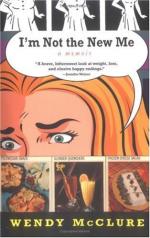[Illustration: A stage-Coach advertisement, 1834.
This advertisement appeared in the “Sangamo Journal” in April, 1834, and held a place in the paper through the next three years. As the “Four Horse Coach” ran through Sangamon town and New Salem, it doubtless had Lincoln as a passenger now and then, but not often, probably, for the fare from New Salem to Springfield was one dollar and twenty-five cents, and walking, or riding upon a borrowed horse, must generally have been preferred by Lincoln to so costly a mode of travelling.]
A few months later the “Long Nine” were again attacked, Lincoln specially being abused. The assailant this time was a prominent Democrat, Mr. J.B. Thomas. When he had ended, Lincoln replied in a speech which was long known in local political circles as the “skinning of Thomas.”
LINCOLN’S FIRST REPORTED SPEECH.
No one doubted after this that Lincoln could defend himself. He became doubly respected as an opponent, for his reputation for good-humored raillery had been established in his campaigns. In a speech made in January he gave another evidence of his skill in the use of ridicule. A resolution had been offered by Mr. Linder to institute an inquiry into the management of the affairs of the State bank. Lincoln’s remarks on the resolution form his first reported speech. This speech has been unnoticed by his biographers hitherto; and it appears in none of the editions of his speeches and letters. It was discovered in the “Sangamo Journal” for January 28, 1837, by Mr. J. McCan Davis, in the course of a search through the files instituted by this Magazine.
[Illustration: Mary L. Owens.
Born in Kentucky in 1808. Lincoln first met Miss Owens in 1833 at New Salem, where she made a short visit. In 1836 she came back to New Salem, and a warm friendship sprang up between them. The question of marriage was discussed in a disinterested way. Miss Owens left Illinois in 1838, and in 1841 she married a Mr. Jesse Vineyard. The letters written to her by Mr. Lincoln she herself gave to Mr. Herndon for publication.]
Lincoln began these remarks by good-humored but nettling chaffing of his opponent.
“Mr. Chairman,” he said: “Lest I should fall into the too common error of being mistaken in regard to which side I design to be upon, I shall make it my first care to remove all doubt on that point, by declaring that I am opposed to the resolution under consideration, in toto. Before I proceed to the body of the subject, I will further remark, that it is not without a considerable degree of apprehension that I venture to cross the track of the gentleman from Coles [Mr. Linder]. Indeed, I do not believe I could muster a sufficiency of courage to come in contact with that gentleman, were it not for the fact that he, some days since, most graciously




